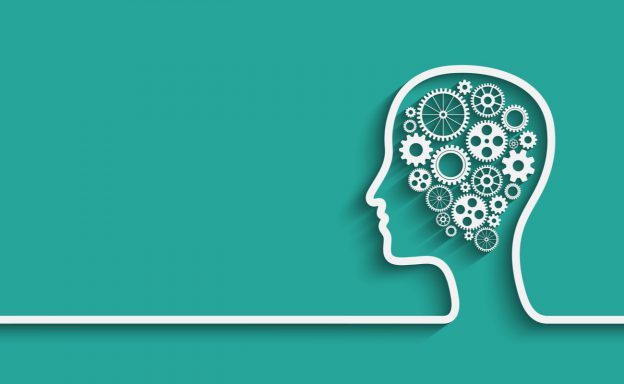We all play poker for different reasons – some play to develop their skills and others play for the thrill of holding a winning hand. What most people don’t realise is that while you are playing, either for fun or to improve your game, you are exercising your mind. These are some of the ways that the world’s favourite card game trains your brain.
Keeping Your Mind Active
Poker is one of the most popular card games in the world and requires skill, strategic thinking, dedication and lots of practice to master. A single game can be incredibly demanding on your mind, often requiring intense focus and concentration for extended periods of time. It’s also a bit of a numbers and stats game, so people who play often find that they become more proficient with their mental arithmetic – which can certainly help in everyday life.
Abstract and creative thinking is also often required at the table when trying to figure out what hands your opponents are holding – picking up on subtle tells and body language and factoring that information into your decision-making at the table is all a part of the game and a great and healthy mental exercise. The more you play and the better you get, the more you flex your brain as you develop more knowledge about the game and become more and more focused, confident and creative.
A lot of players like to roll their chips through their fingers while they sit at the table, and while this is a way of keeping your hands busy while your opponents bet, and maybe diverts a little attention from your face, flipping your chips has some coordination benefits – if you can roll the chips across your fingers you are training hand-eye coordination as well as your dexterity.
The Social Aspect
Whether you are in a brick-and-mortar establishment or your favourite, you are undoubtedly going to be interacting, chatting and bantering with other players – after all, interacting with your opponents to bait their tells is part of the thrill of the game. Playing poker ensures that you are connecting and interacting with like-minded people which is incredibly healthy for your state of mind. Chatting at the table works to develop social and communication skills and can be a great way to learn more about the game, but communicating and having fun with people who share an interest can lower anxiety and stress levels too. Online casinos often have thriving and friendly communities and can be a great place to explore the social side of the game, and by engaging with your opponents, you might even pick up a couple of tips and tricks.
Emotional Control
As we said before, a game of online poker can be intense and requires discipline and focus for extended periods of time. This comes into play with the emotional side of the game too, as you are likely to experience a wide range of emotions such as elation, anxiety, anger, and happiness. An incredibly important skill to train, for anyone who wants to get good at the game, is the ability to control these emotions and not let them influence your decision making or give yourself away to your opponents – you may have heard of the term “poker face” and this is exactly what that refers to.
Having to constantly control the waves of emotion you experience during a game is a great exercise for your brain and can help to improve emotional control overall. Those who are practiced at controlling their reactions and feelings at the table become some of the most intimidating and dominant players as their opponents are unable to confidently predict their moves – and that can often mean the difference between them calling or folding your bluff. Keep yourself cool, calm and collected and you will keep them guessing.
Strengthen Your Working Memory
A game can take a long time to play through and each individual round can take up to 15 or 20 minutes – which means that you’ll have a lot of information to process and thus requires a keen memory. In order to be a good player, you need to pay a lot of attention and remember everything that happens at the table around you. Any and all information is useful to you from the beginning to the end.
Recognising how certain people react to events and weighing your hand against the other cards on the table and the potential hands that your opponents could be holding are all cognitively demanding and taxing on your brain. A poker odds calculator is also a great way to get insight into your opponents’ hand. This gives your memory a massive workout and it will become better for it – not only that but the better you get at memorising the goings-on at the table, the better you will get at your game.
Improve Your Sleep
We’ve discussed how demanding and taxing online games can be on your mind so it should come as no surprise that after a game you might be feeling a little drained and tired. The typical game has your mind doing so much at all times – whether that’s memorising the reactions of your opponents or controlling your emotions and maintaining a stoic expression – that you are effectively getting a full-body workout on your mind.
So, when you log out and have been exerting all these different aspects of your mind, you will need to sleep in order to rest yourself and reset for the next workout. During a single session, you will likely work your brain to the point of exhaustion, and you might find that drifting off to sleep is a little easier – which has health benefits for both your body and mind.
Alzheimer’s and Dementia
Possibly the greatest test of poker as a cognitive skill is its ability to reduce the effects of neurodegenerative diseases such as Alzheimer’s and dementia. A study by Dr. Jeffrey Cummings revealed that playing can reduce the chance of developing Alzheimer’s by as much as 50%. Another study revealed that elderly people who play card games are able to encourage mental function and engagement, which can also help prevent the development of Alzheimer’s. On top of the cognitive exercise is the social aspect – which has been proven to also help combat neurodegeneration and the effects of aging.
Poker also helps players to get to know themselves as they are having to engage with their emotions and control how they react to certain situations. Self-control is often what sets pros and amateur players apart, as it is those who control how the game unfolds and not vice-versa.
Ready for a Workout?
If you would like to buff up your brain and gain some of these benefits yourself, why not take a seat at one of our poker tables and start your mental workout? Playing live at Grosvenor Casinos is a truly unique experience and we’re available to you 24/7.
We’re here to help you keep it fun – remember to set your deposit limit. Click here for more details on the safer gambling tools available including reality checks and the ability to take a break from your gaming.




Leave a Reply